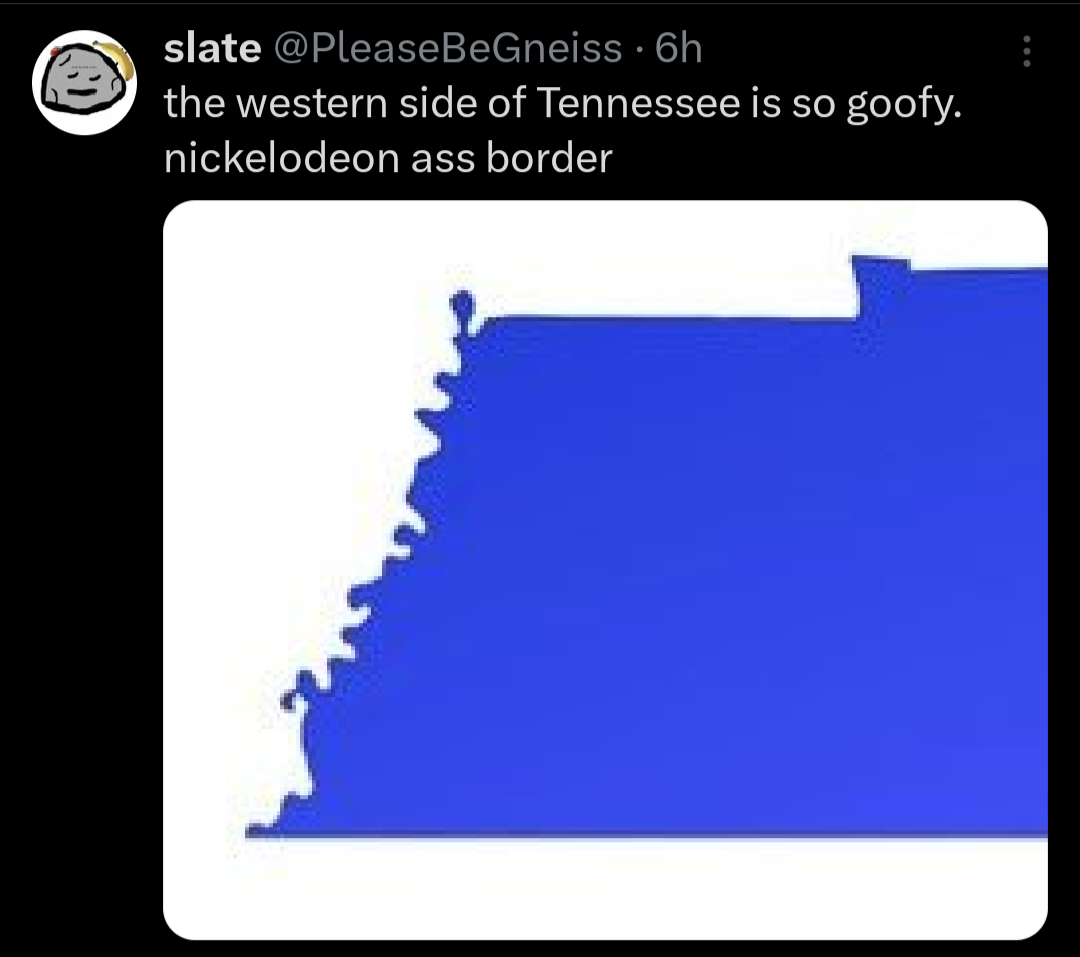this post was submitted on 05 May 2024
453 points (98.5% liked)
People Twitter
5299 readers
1259 users here now
People tweeting stuff. We allow tweets from anyone.
RULES:
- Mark NSFW content.
- No doxxing people.
- Must be a tweet or similar
- No bullying or international politcs
- Be excellent to each other.
founded 1 year ago
MODERATORS
you are viewing a single comment's thread
view the rest of the comments
view the rest of the comments

What happens when the river moves though?
WAR!!!
Nothing, the watershed boundaries are the points where water stops flowing towards one body of water and starts flowing towards another.
I know what a watershed is, we're talking about borders between states.
Draw a squiggly line that follows the river. You get the left side, I get the right side. The river moves as rivers do. After 100 years we do a survey and find I have a big chunk of property that used to be my side of the river but the river moved towards me and now that's on your side of the river. I've lost some land due to some being on the other side of the river and more due to the land I used to have being a river now.
Is the boundary between us the water and we put up with the uncertain nature of our property, or do we honour the line drawn 100 years ago even though the river isn't anywhere near there now?
I'm pretty sure rivers don't run along watershed borders. Which are the borders OP is suggesting.
That squiggly line is the Mississippi river.
You're the only one talking about rivers in this sub-thread. Not that watershed boundaries can't change.
Well I see now I commented on the wrong thread.
They change but much more slowly since they change with long term changes in terrain, as opposed to the natural weathering effect of a river, especially one that meanders.
Plus greater watershed boundaries tend to settle around mountain fronts or peaks as well as other such difficult terrains that are less prone to hosting large settlements that could hypothetically get cut off from their own greater metro area, and more likely to already form their own natural barriers just because that happens to be the places where water will begin moving in the other direction towards a different outlet.